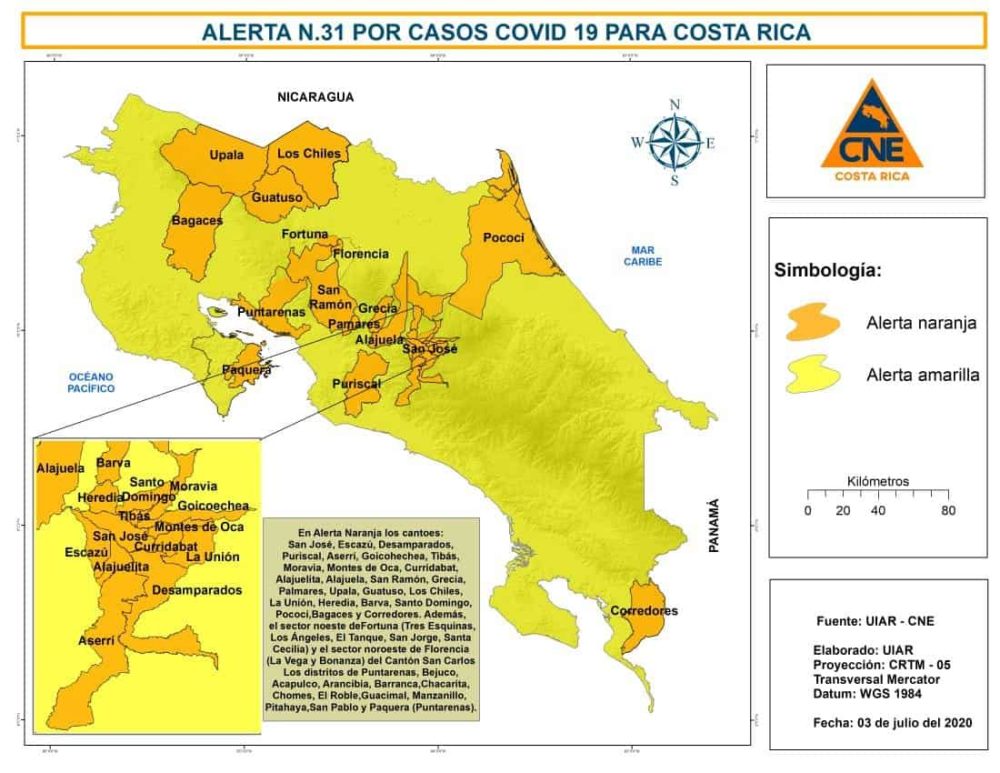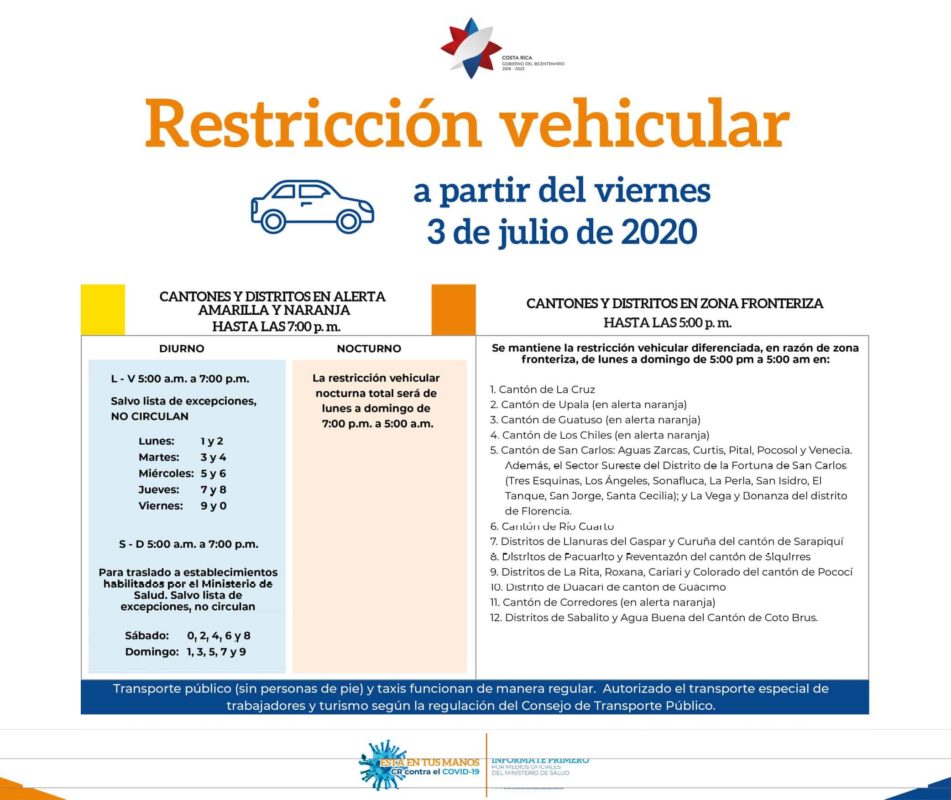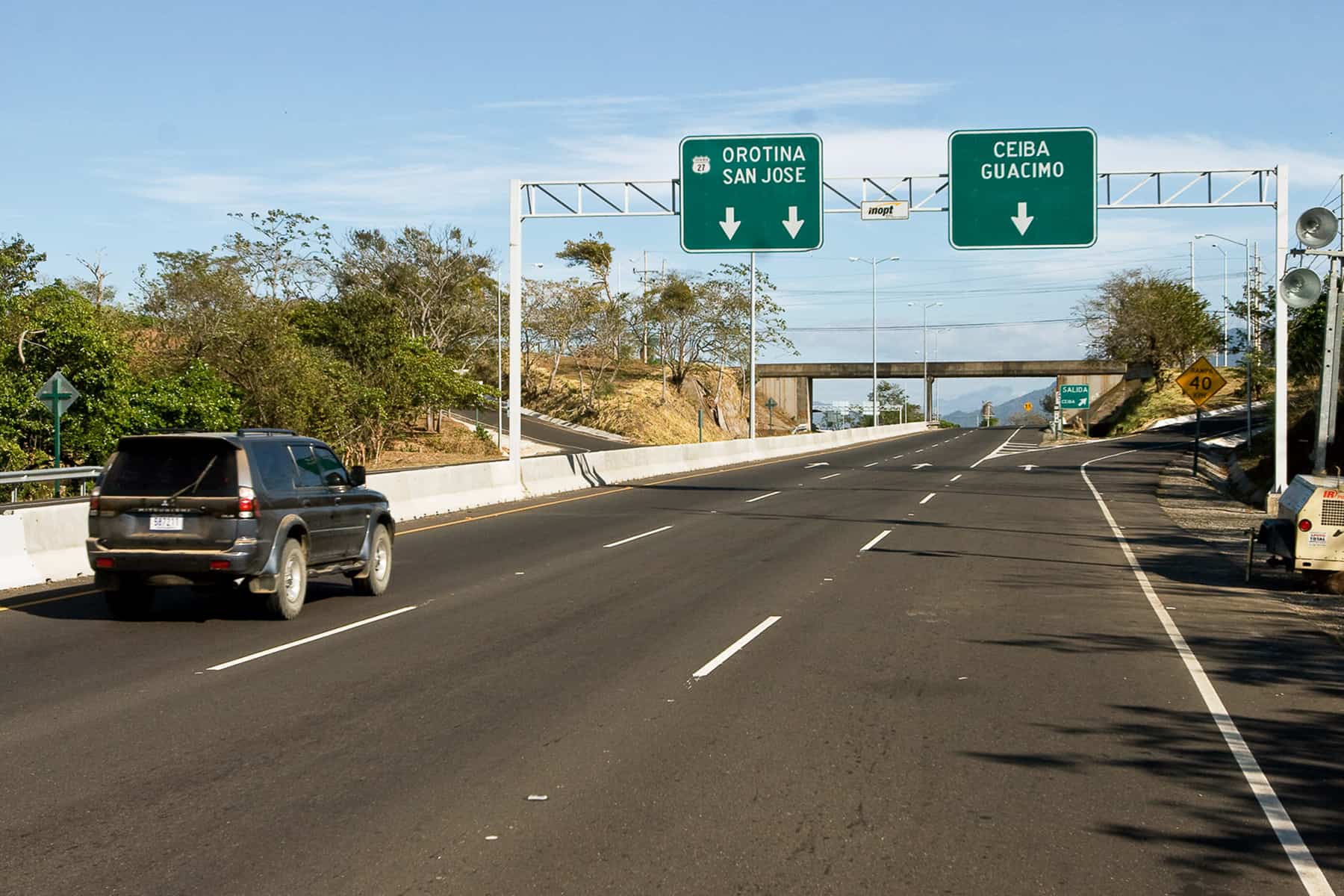Costa Rica has reapplied restrictions in response to an increase in coronavirus cases and hospitalizations.
Here’s what’s open (and what isn’t) in Costa Rica as of July 3, 2020; the government says these measures will remain in place through at least July 13.

Yellow Alert remains in Phase 3
All regions in a Yellow Alert, as indicated in the above map, remain in Phase 3 of reopening.
That means the following:
- Beaches are open every day from 5 a.m. to 9:30 a.m.
- Most national parks and many other private reserves are open. (Click here for a full list from SINAC.)
- Hotels and restaurants can open at 50% capacity, including on the weekends.
- Commercial centers, most stores, gyms and theaters/museums can operate during the week and on the weekend.
- Places of worship can hold services of up to 75 people.
- Bars must remain closed, and other mass gathering events remain suspended.
Wearing a mask or face shield is obligatory on paid transport (e.g. taxi, bus), at religious ceremonies, and at most commercial businesses (e.g. supermarkets, stores, banks). You may be denied entry into an establishment if you do not have an appropriate face cover.
Orange Alert has stricter rules
All regions in an Orange Alert, as indicated in the above map, have stricter restrictions.
That means the following:
- Commercial activity is permitted during the week, including restaurants at 50% capacity.
- On the weekend, only supermarkets, pharmacies, medical centers, delivery services, etc. can open for guests. Restaurants can open for take-out/delivery only.
- Hotels can operate throughout the week. Farmer’s markets can operate with special hours for at-risk populations. Religious gatherings (e.g. church services) are not permitted.
The Health Ministry believes there is community transmission of the coronavirus in the Greater Metropolitan Area (GAM) including and surrounding the capital of San José.
The same mask/face shield requirements apply in public spaces; however, the Health Ministry has recommended wearing face coverings at all times in public in areas where community transmission is likely.
Modified driving restrictions
The nationwide nighttime vehicular restriction lasts from 7 p.m. to 5 a.m. every night, regardless of whether the region is under a yellow or orange alert.
Daytime restrictions based on the last digit of a vehicle’s license plate still apply:
- Monday: From 5 a.m. to 7 p.m., vehicles with license plates ending in 1 and 2 cannot drive.
- Tuesday: From 5 a.m. to 7 p.m., vehicles with license plates ending in 3 and 4 cannot drive.
- Wednesday: From 5 a.m. to 7 p.m., vehicles with license plates ending in 5 and 6 cannot drive.
- Thursday: From 5 a.m. to 7 p.m., vehicles with license plates ending in 7 and 8 cannot drive.
- Friday: From 5 a.m. to 7 p.m., vehicles with license plates ending in 9 and 0 cannot drive.
- Saturday: From 5 a.m. to 7 p.m., vehicles with license plates ending in even numbers cannot drive.
- Sunday: From 5 a.m. to 7 p.m., vehicles with license plates ending in odd numbers cannot drive.
In certain border regions, the nighttime restrictions apply from 5 p.m. to 5 a.m. nightly as indicated by the far-right column:

International travel
The Health Ministry said Thursday that Costa Rica still plans to welcome foreign visitors on August 1.
Tourists will be allowed only from countries with controlled coronavirus transmission, and they must abide with other contact-tracing measures. That protocol and the list of allowed countries will be announced later in July.
Currently, Costa Rican citizens are permitted to enter the country. Non-citizen residents who last left the country on or before March 24 can also enter Costa Rica. All must isolate at home for 14 days.
All ongoing repatriation flights operate from Juan Santamaría International Airport near San José. The airport’s expectation of when airlines will resume operations is linked here.






